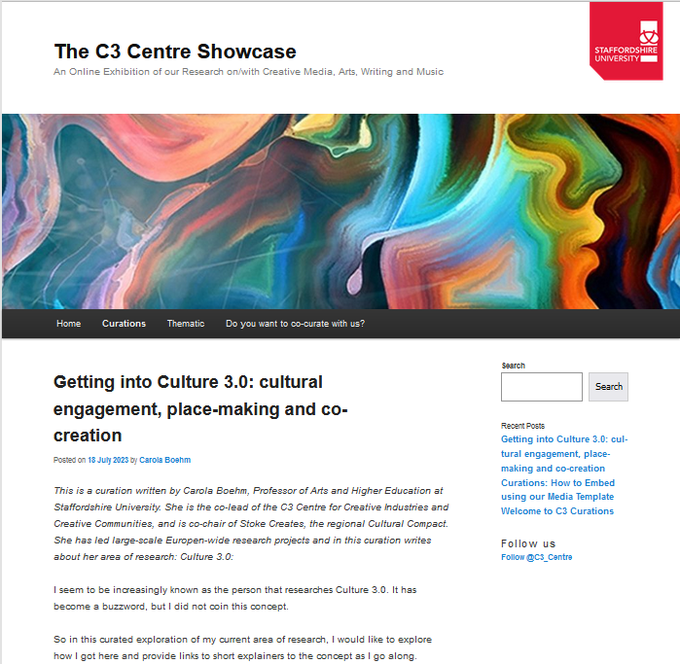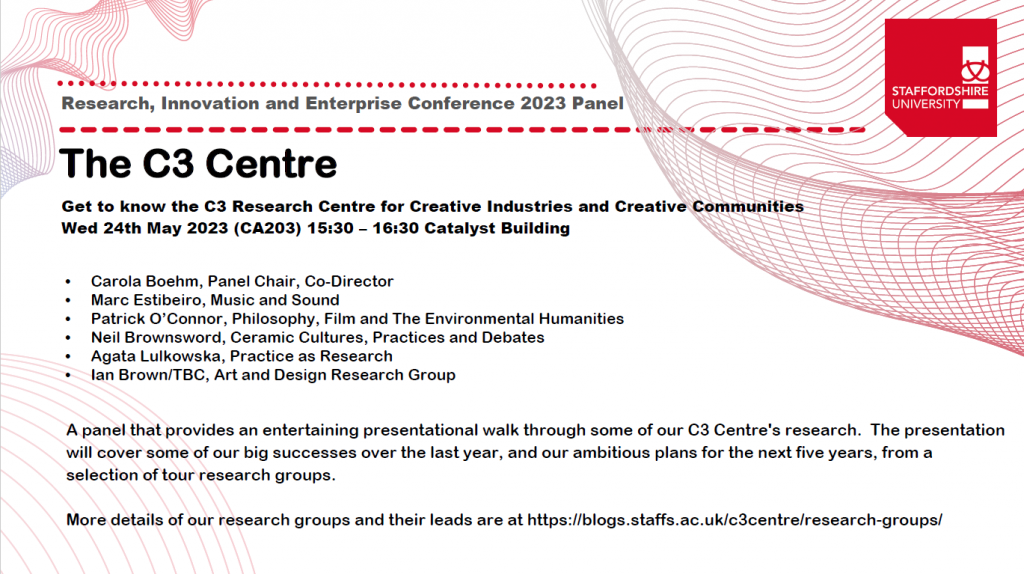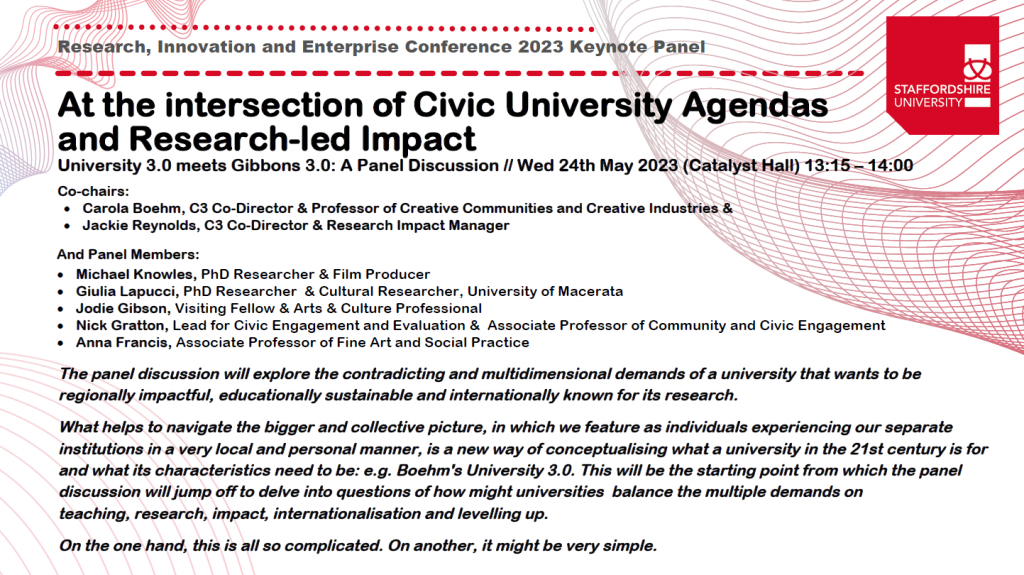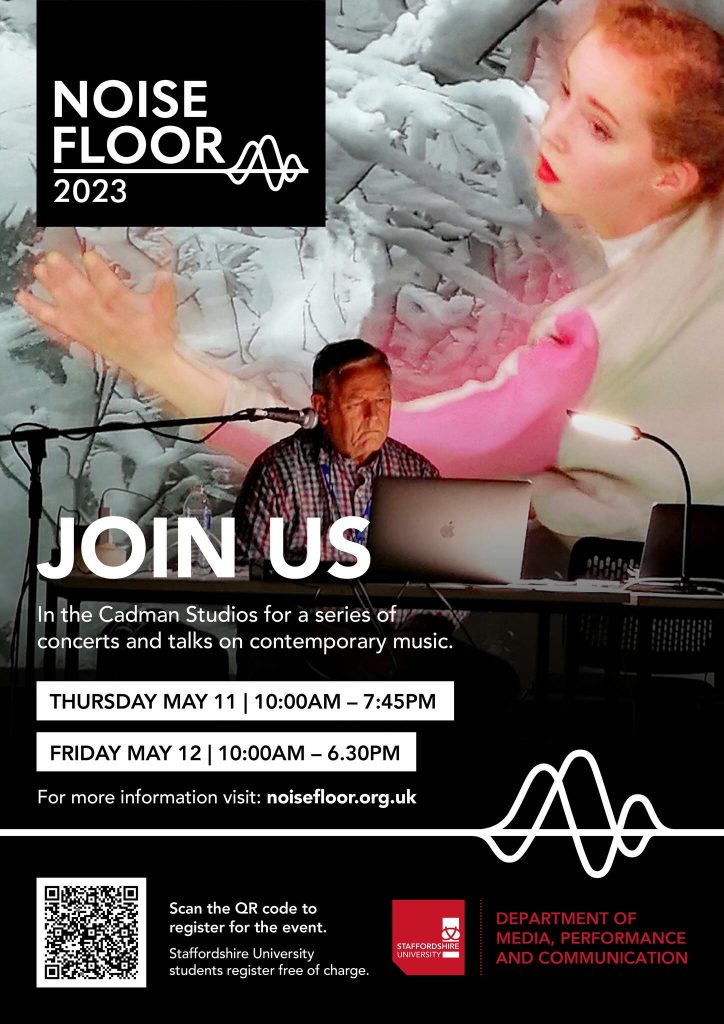Below are the videos we recorded at this year’s Staffordshire University Research Conference on 24th and 25th of May. There will be a curated blog post about our presentations on our Showcase Site at https://blogs.staffs.ac.uk/c3showcase/ , but in short below are the different presentations from our C3 researchers that presented at the conference.
Enjoy.
All videos were recorded by Jack Tune.
Panel Discussion – University 3.0 Meets Gibbons 3.0
A recording of the C3 Centre Panel at the Staffordshire University Research, Innovation and Enterprise Conference 2023. Panel members are Carola Boehm, Jackie Reynolds, Michael Knowles, Jodie Gibson, Giulia Lapucci, and Nicola Gratton.
Get to know the C3 Research Centre for Creative Industries and Creative Communities
An exciting look into the C3 Centre, detailing who we are and some of the innovative projects that we have been involved with. C3 Panel members – Carola Boehm, Mark Estibiero, Patrick O’Connor, Neil Brownsword, and Agata Lulkowska.
Dan Lewis – Designing Emotions: Strategies for Furniture Designers
Designing Emotions: Strategies for Furniture Designers. Presentation by Dan Lewis, Course Director for Design at Staffordshire University.
Rebecca Nunes – Eco Alliances: Imaging the other-than-human to create advocacy for the environment.
Eco Alliances: Imaging the other-than-human to create advocacy for the environment. Presentation by Rebecca Nunes, Associate Professor in Lens-Based Media at Staffordshire University.






